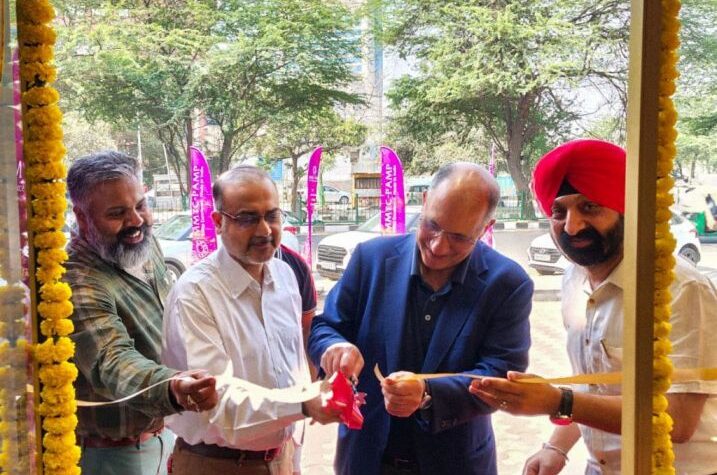
Sputnik V is playing the key role in the vaccination campaign in Mexico’s capital with over 3 million citizens of Mexico City already administered the Russian vaccine. The first component of Sputnik V (Sputnik Light) is also increasingly used in the city’s revaccination campaign as a booster.
Sputnik V accounts for 40 percent of all COVID vaccines given to people in Mexico City, according to Eduardo Clark, General Director of the Digital Agency For Public Innovations (ADIP) of the City of Mexico (CDMX). (LINK: https://www.milenio.com/politica/comunidad/sputnik-v-vacuna-rusa-utilizada-cdmx-autoridades )
City of Mexico will also extend the use of the first component of Sputnik V (Sputnik Light) as a booster for 30-39 aged group from February 14. (LINK: https://noticieros.televisa.com/ultimas-noticias/cdmx-aplicara-vacuna-covid-refuerzo-astrazeneca-sputnik-personas-30-39-anos/). It had earlier started administering the one-shot Russian Sputnik Light as a booster to the 40-49 aged group.
Sputnik V creates stronger and longer lasting immune response against COVID (including the Omicron variant) than many other vaccines, which is further strengthened by Sputnik Light booster. Sputnik Light is based on human adenovirus serotype 26 and is the first component of Sputnik V vaccine. Sputnik Light has been approved in more than 30 countries with a total population of over 2.5 billion and Sputnik V – in 71 countries with a total population of over 4 billion people.
A unique comparative study[1] conducted at Lazzaro Spallanzani National Institute for Infectious Diseases in Italy by a team of 12 Italian and 9 Russian scientists led by Francesco Vaia, Director of the Spallanzani Institute and Alexander Gintsburg, Director of the Gamaleya Center has shown that Sputnik V vaccine demonstrates more than 2 times higher titers of virus neutralizing antibodies to Omicron (B.1.1.529) variant than 2 doses of Pfizer vaccine (2.1 times higher in total and 2.6 times higher 3 months after vaccination).
The study was conducted in the equal laboratory conditions on comparable sera samples from individuals vaccinated with Sputnik V and Pfizer with a similar level of IgG antibodies and virus neutralizing activity (VNA) against Wuhan variant. Sputnik V showed significantly smaller (2.6 times) reduction of virus neutralizing activity against Omicron as compared to reference Wuhan variant than Pfizer vaccine (8.1-fold reduction for Sputnik V in contrast to 21.4-fold reduction for Pfizer vaccine).
The lower efficacy of mRNA vaccines against Omicron as well as the quickly waning efficacy of mRNA vaccines against COVID can be addressed by using Sputnik Light as a universal booster. Based on the data collected by the Spallanzani Institute and results of previous studies, heterologous (“mix & match”) boosting with Sputnik Light is the best solution to increase other vaccines’ efficacy and extend the booster protection period as optimal adenoviral platform configuration provides better protection against Omicron and other mutations.
Sputnik Light has already shown strong results used as a booster in “mix & match” trials. For example, in Argentina a combination study of Sputnik Light with vaccines produced by AstraZeneca, Sinopharm, Moderna and Cansino has demonstrated that Sputnik Light induces stronger antibody and T-cell response as compared to homologous regimen (two shots of the same vaccine). The study conducted in five provinces showed each “vaccine cocktail” combination with Sputnik Light had provided a higher antibody titer on the 14th day after administering a second dose when compared to original homologous (same vaccine as first and second dose) regimens of each of the vaccines.
Sputnik Light and Sputnik V and have been developed using a safe technology that has been widely studied for over 30 years and have not been associated with rare serious side effects such as myocarditis or pericarditis.
The highest safety and efficacy of Sputnik V and Sputnik Light was demonstrated in more than 30 studies and real-world data publications from more than 10 countries.
Sputnik V and Sputnik Light can be stored in a conventional refrigerator at +2 +8ºC for 6 months, making them available globally, including in remote territories, without any need to invest in additional cold-chain infrastructure.
[1] https://www.medrxiv.org/content/10.1101/2022.01.15.22269335v1





More Stories
Berger Paints Champions Climate Comfort with “Garmi Gone, Thandak On” Home Cooling Solutions
Limited-time deal: Vietjet offers 50% off tickets across all routes
Airtel Partners with Blinkit to Deliver SIM cards to Customer’s Homes in Just 10 Minutes